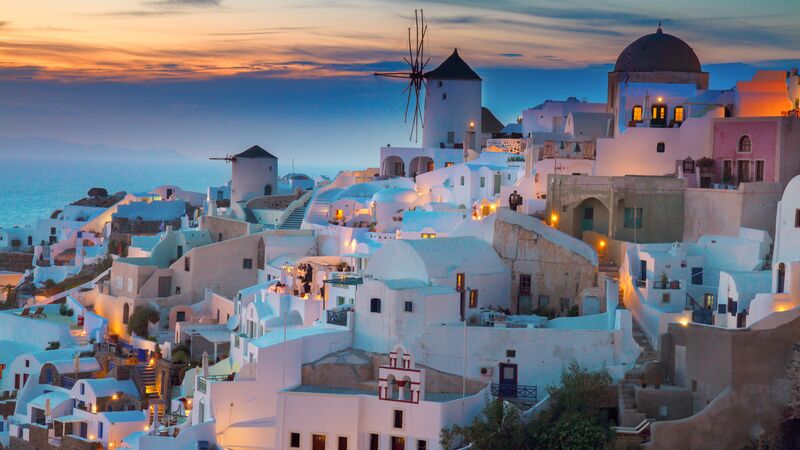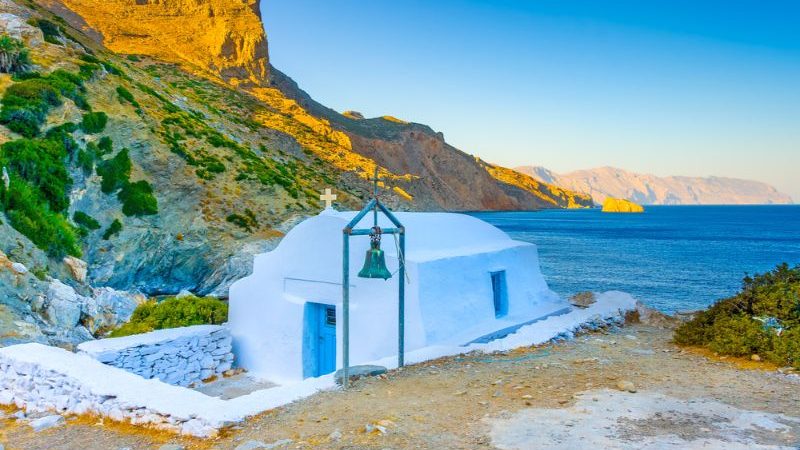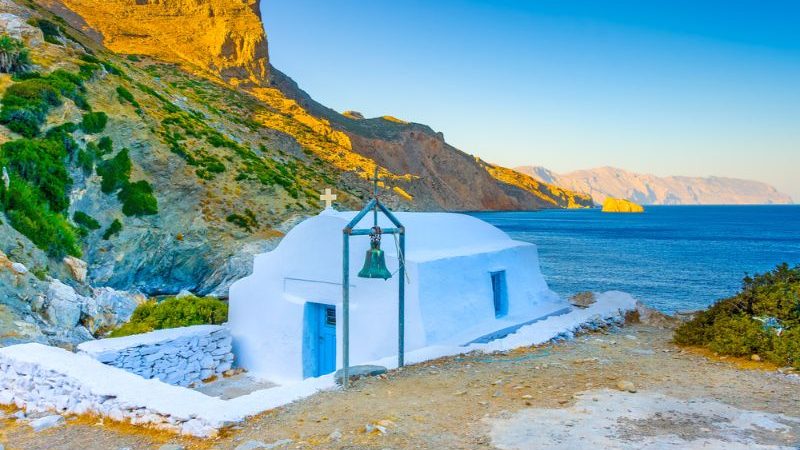Join us on a captivating journey as we explore the enchanting world of Greek mythology and its profound connection to the picturesque Greek islands. Embark on a fascinating adventure as we uncover the mythical tales that have shaped the rich cultural heritage of these ancient lands. From the mighty Mount Olympus to the mystifying island of Delos, brace yourself for a deep dive into the captivating narratives of gods, goddesses, heroes, and monsters that have captivated imaginations for centuries. Discover the captivating allure of these legendary stories and unravel the secrets that lie within the stunning Greek islands.
Ancient Greek Mythology
Welcome to the enchanting world of Ancient Greek Mythology! As you embark on this journey, get ready to be captivated by a rich tapestry of stories, gods, and mythical creatures that have fascinated people for centuries. Greek mythology has its roots in the dawn of civilization and has left an indelible mark on literature, art, and culture throughout the ages. So, let’s dive in and explore the origins, the gods and goddesses, and the role of mythology in Greek culture!
Greek Mythology Origins
Greek mythology dates back to around the 12th century BCE, making it one of the oldest mythological traditions in the world. It emerged as a way for the ancient Greeks to understand the world around them, explaining natural phenomena, human behavior, and the mysteries of life and death through stories passed down through generations.
Ancient Greek myths were often used to teach moral lessons, instill values, and reinforce cultural norms. These myths were crafted by poets and storytellers who sought to both entertain and educate their audience. From the heroic tales of gods and goddesses to the struggles of mortals, these myths reflect the beliefs, fears, and desires of the ancient Greeks.
The Gods and Goddesses of Greek Mythology
Greek mythology is replete with a pantheon of gods and goddesses, each with their distinct personalities, powers, and domains. From the mighty Zeus, ruler of the gods, to Athena, the goddess of wisdom, and Aphrodite, the goddess of love and beauty, these deities exerted a significant influence on all aspects of Greek life.
The gods and goddesses of Greek mythology often interacted with mortals, both helping and hindering them in their pursuits. These divine beings embodied the hopes, dreams, and flaws of humanity, making them relatable figures despite their otherworldly nature.
The Role of Mythology in Greek Culture
Greek mythology played a crucial role in shaping various aspects of ancient Greek culture. It permeated every sphere of life, from religion and art to politics and education. Temples, sculptures, and paintings depicting mythological figures adorned the cities, serving as tangible reminders of the divine presence.
Myths were an integral part of religious rituals and festivals, providing a sacred framework for the Greek understanding of the divine. The stories of the gods and their interactions with mortals instilled a sense of awe, fear, and reverence among the people, guiding their religious practices and beliefs.
Moreover, Greek mythology inspired a rich tradition of literature, including epic poems like Homer’s Iliad and Odyssey, as well as plays by renowned playwrights such as Sophocles and Euripides. These works not only entertained but also explored profound themes of human existence, morality, and the nature of the gods.

Greek Islands and Their Mythical Tales
Now that we have laid the foundation of Greek mythology, let’s embark on an exciting journey across the Greek islands to uncover their mythical tales. Each island holds its own unique stories and legends, adding more layers to the vast tapestry of Greek mythology. So, grab your imagination and let’s set sail!
The Mythology of Crete
As the largest of the Greek islands, Crete has an abundance of fascinating mythical tales. Being the birthplace of Zeus, the king of the gods, Crete holds a special place in Greek mythology. One of the most intriguing locations on the island is the Cave of Psychro, said to be the very spot where Zeus was born. Imagine standing in the same place where the ruler of the heavens entered the world!
Another captivating tale is that of the Labyrinth of Knossos, where the fearsome Minotaur, a half-human, half-bull creature, dwelled. This underground maze, crafted by the legendary craftsman Daedalus, serves as a haunting reminder of the perils that awaited those who dared to confront the beast.
Exploring Crete’s mythological tales wouldn’t be complete without mentioning the Minoan civilization. Known for its advanced culture and impressive palace complexes, the Minoans left behind captivating frescoes depicting bull-leaping rituals, offering a glimpse into their intricate religious practices.
The Mythology of Santorini
Santorini, with its breathtaking landscapes and awe-inspiring sunsets, also boasts a rich mythological heritage. One of the most famous tales associated with this island is the story of Atlantis. According to legend, Atlantis was an advanced civilization that met a catastrophic end, sinking into the sea and leaving only Santorini as a remnant of its once-great power.
Santorini’s volcanic eruption, which is considered one of the most significant in recorded history, plays a central role in Greek mythology. This cataclysmic event gave birth to various myths, including the idea that the eruption was the wrath of the gods, specifically Poseidon, the god of the sea, who sought revenge against the people of Atlantis.
The myth of Persephone and Hades, the god of the underworld, also has strong connections to Santorini. It is believed that this island served as the gateway between the mortal realm and the underworld, adding an air of mystique to its already enchanting allure.
The Mythology of Rhodes
Rhodes, famous for its stunning beaches and ancient ruins, has its fair share of captivating myths. One of the most iconic symbols associated with Rhodes is the Colossus of Rhodes, a towering statue dedicated to the sun god Helios. This colossal monument stood guard over the harbor, exemplifying the island’s connection to the divine and its role as a protector.
Speaking of Helios, the tale of this sun god is deeply intertwined with Rhodes. According to mythology, Helios fell in love with the nymph Rhode, after whom the island is named. Their union gave rise to a beautiful lineage, immortalizing the island’s enchanted ties to the heavens.
Rhodes is also home to the myth of the nymphs and the dragon of Lindos. Legend has it that Zeus, the king of the gods, transformed the nymphs into protective guardian figures who kept watch over the island. The fearsome dragon, slain by the hero Triopas, is said to be entombed beneath the cliffs of Lindos, forever preserving the island’s mythical heritage.
The Mythology of Delos
Delos, a small island located in the heart of the Cyclades, is believed to be the birthplace of the divine twins Apollo and Artemis. These powerful deities, associated with the sun, music, hunting, and the moon, were revered throughout ancient Greece.
The Sacred Lake of Delos is said to be the spot where the goddess Leto, mother of Apollo and Artemis, found sanctuary and gave birth to these remarkable twins. This picturesque lake holds a sacred significance, as it symbolizes the divine union between Zeus and Leto.
Delos is also intertwined with the legend of Hercules and the Giants. According to the myth, Hercules, renowned for his strength and heroic deeds, slayed the giants who threatened the domain of the gods. This epic battle between good and evil echoes throughout the island, immortalizing the legacy of Hercules.
The Mythology of Mykonos
Mykonos, known for its vibrant nightlife and picturesque windmills, holds its own share of mythological legends. One of the prominent myths associated with Mykonos is the battle between Zeus and the Titans on Mt. Kynthos. It is believed that the Titanomachy, the great cosmic war between the Olympian gods and the Titans, unfolded on this very island.
Mykonos also has a close connection to Dionysus, the god of wine and celebration. One famous myth tells the tale of Dionysus and his band of followers, the Maenads, who traversed the island in wild, ecstatic revelry. The intoxicating energy of Dionysus still lingers in the air, making Mykonos a hub of joyous festivities and revelry.
An enchanting legend associated with Mykonos is that of Queen Mykonos and King Delian. This tale recounts the beautiful love story between a mortal queen and a divine king. Their union symbolizes the harmonious intermingling of the mortal and divine realms, a union celebrated on this magical island.
The Mythology of Naxos
Naxos, a gem in the Aegean Sea, holds a significant place in Greek mythology. The island’s mythological narrative revolves around the abduction of Ariadne by Dionysus. Ariadne, daughter of King Minos of Crete, played a crucial role in helping Theseus navigate the treacherous Labyrinth and slay the Minotaur. Following Theseus’s triumph, Dionysus fell in love with Ariadne and spirited her away to Naxos, where they found their eternal love.
Naxos is also home to the majestic Temple of Apollo, a remarkable testament to the island’s ancient glory. This temple served as a sacred sanctuary dedicated to the god of music, poetry, and prophecy, and it attracted visitors from far and wide who sought divine inspiration.
The legend of Bacchus’ rescue further adds to Naxos’s mythological allure. Bacchus, the Roman counterpart of Dionysus, was said to have been captured by pirates who sought to sell him as a slave. However, Bacchus’s divine powers manifested, and he transformed the pirates into dolphins, saving himself and forever marking Naxos as a place of divine intervention.
The Mythical Tales of Lesbos
Lesbos, known for its stunning landscapes and the works of the legendary poetess Sappho, has a rich tapestry of mythological tales waiting to be revealed. The story of Sappho, the poetess of love, is deeply entwined with the island of Lesbos. Her evocative poetry on love, longing, and desire has left an everlasting mark on literature, making Lesbos a symbol of poetic expression and the celebration of love.
Another intriguing myth associated with Lesbos is that of the Sirens. These seductive creatures, with their enchanting voices, lured sailors to their doom with their irresistible songs. The island’s rocky shores and hauntingly beautiful landscapes have forever been associated with the haunting calls of the Sirens.
Lesbos is also revered as the birthplace of Hephaestus, the god of fire and craftsmanship. Hephaestus, who possessed unmatched skill in metalworking, forged the divine weapons and tools of the gods. The island’s ancient volcanic landscapes, dotted with black volcanic rock, serve as a testament to the fiery origins of this revered deity.
The Enchanting Myths of Samos
Samos, nestled in the eastern Aegean Sea, is steeped in captivating myths and legends. The Temple of Hera, located on this mystical island, holds great significance in Greek mythology. This grand structure was dedicated to the goddess Hera, queen of the gods and protector of marriage and childbirth. The temple’s grandeur and majesty speak to the island’s divine ties and religious reverence.
Samos is also associated with the Gigantomachy, the legendary battle between the gods and the giants. It is believed that the island served as the battleground for this epic conflict, with the mighty Hercules leading the charge against the fearsome giants. The remnants of this battle can still be felt in the lush landscapes and rolling hills of Samos.
The story of Pythagoras, the renowned mathematician and philosopher, is another fascinating myth connected to Samos. Pythagoras’s groundbreaking discoveries, including the theorem that bears his name, revolutionized mathematics and laid the foundation for modern geometry. Samos served as the birthplace and nurturing ground for this brilliant mind, forever etching itself into the annals of intellectual history.
Samos’s ties to the goddess Hera are further celebrated through its captivating legends. Hera, the queen of the gods, had a special affinity for Samos, making the island a place of divine significance and spiritual connection.
As we conclude this whirlwind tour of the Greek islands and their mythical tales, it is evident that Greek mythology transcends time and continues to captivate our minds and imaginations. These stories, passed down through generations, serve as windows into the rich tapestry of ancient Greek culture, offering lessons, inspiration, and a means to understand the human experience. So, next time you find yourself exploring the Greek islands, remember to keep an eye out for the hidden whispers of ancient myths and legends that still echo through the sands of time. Happy exploring!

